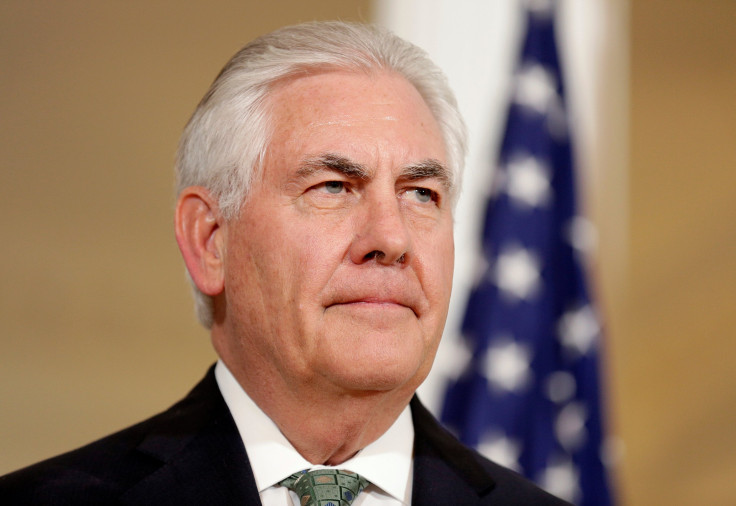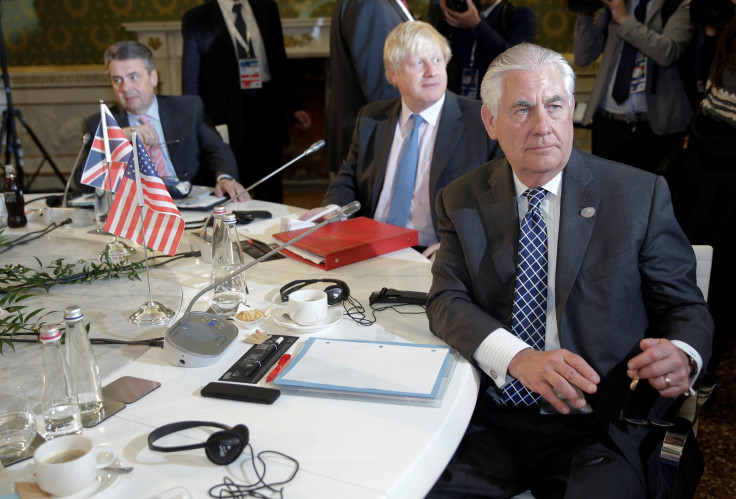Tillerson Gives Russia Ultimatum: Side With The US Or Iran

U.S. Secretary of State Rex Tillerson was scheduled to meet with Russian diplomats this week to discuss Russia's obligation to drain Syria of chemical weapons under a 2013 agreement. Tillerson gave Russia an ultimatum Tuesday to side with the U.S.— and other countries with the same stance on Syria— or to side with Iran, the militant group Hezbollah and Syrian president Bashar Assad.
Read: Trump Russia Ties: Rex Tillerson To Avoid NATO Meeting, To Visit Moscow In April
Whether or not Russia appeared ignorant or failed to take seriously its duty to remove Syria's chemical weapons, Tillerson said it didn't make a difference "to the dead," the Associated Press reported Tuesday.
"We cannot let this happen again," Tillerson said. "We want to relieve the suffering of the Syrian people. Russia can be a part of that future and play an important role — or Russia can maintain its alliance with this group, which we believe is not going to serve Russia's interests longer term."

Tillerson said there was no evidence that Russia knew beforehand about the chemical weapons attack in Idlib last week, which killed at least 70 people, but he planned to discuss Russia's support for Assad during the meeting, according to Reuters.
"I'm hopeful that we can have constructive talks with the Russian government, with Foreign Minister Lavrov and have Russia be supportive of a process that will lead to a stable Syria," Tillerson said on ABC's segment "The Week" Sunday.
However, Tillerson heads into Wednesday's meeting after Trump issued an air strike on Syria. "If there hadn't been the overt break between Washington and Moscow over the U.S. strikes in Syria, then I think all eyes would have been on Tillerson and his ability to move the needle on improving the relationship with Moscow," Obama administration National Security Council official Charles Kupchan said. "No longer is he expected to go to Moscow and bring home the bacon — he's expected to go to Moscow and have a tough conversation, and that's exactly what he'll get."
© Copyright IBTimes 2024. All rights reserved.





















